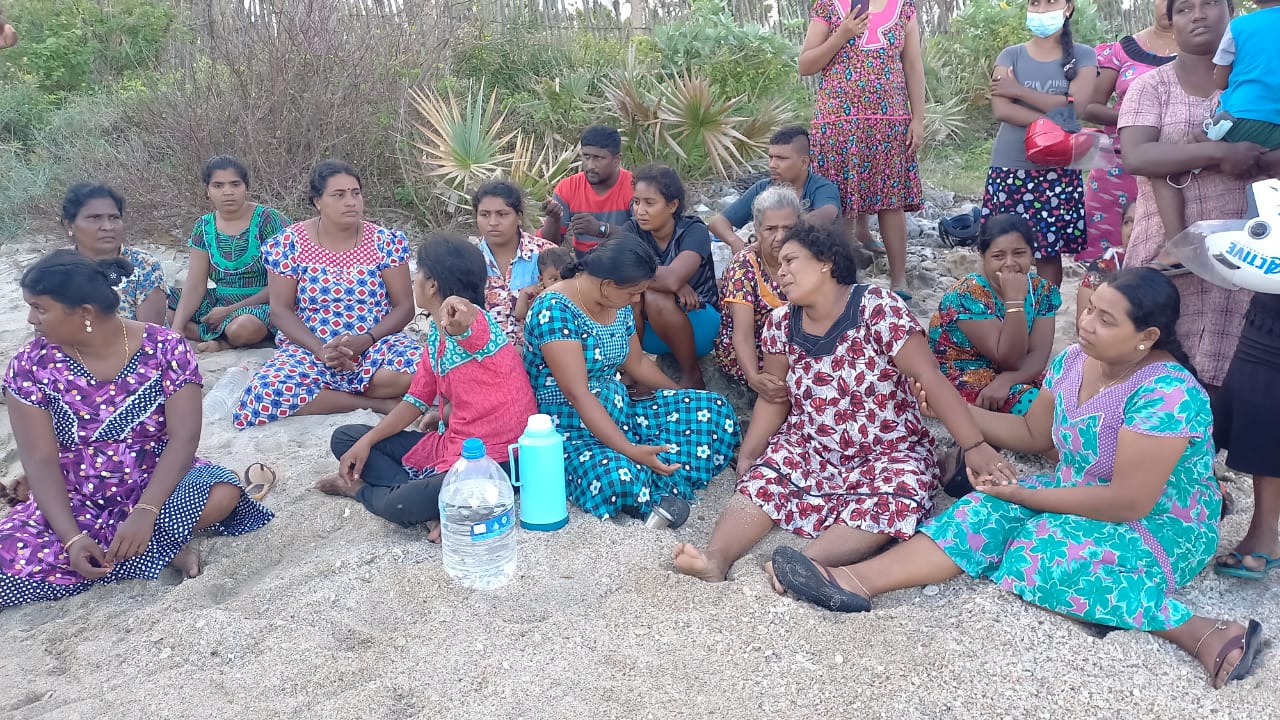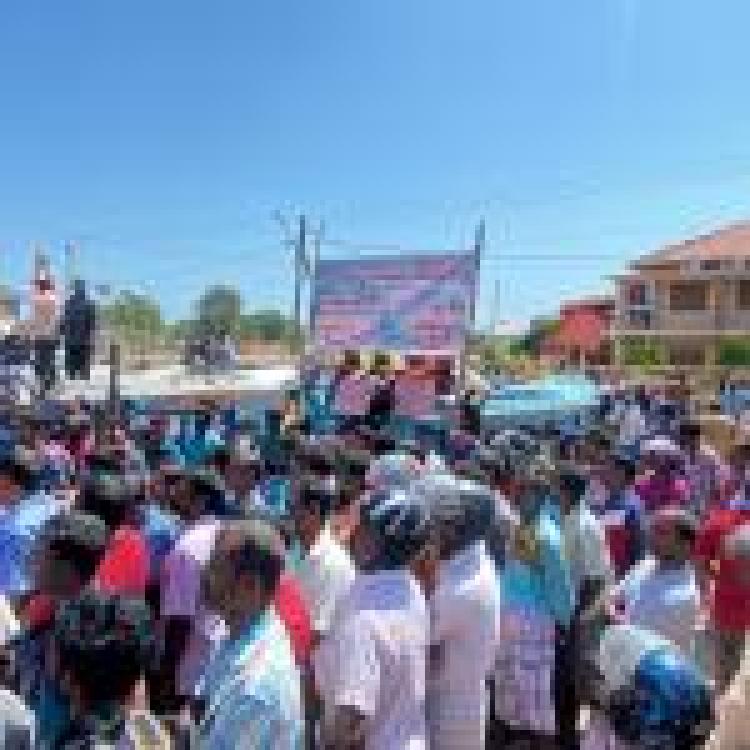.jpg)
In front of the Sri Lankan government’s fisheries and aquatic resources department’s office in Mullaitivu, Tamil fishermen have set up a camp to protest their illegal activities and demand a solution for the hardship they face.
“We will fight until they get a solution,” a representative of the Mullaitivu District Fishermen's Federation told Tamil Guardian’s journalists.
Across the Tamil homeland of the North-East, the livelihood of Tamil fishermen continues to be threatened by the occupation of Sri Lanka’s military. In February of last year, the Sri Lankan Navy arbitrarily restricted Tamil fishermen in Mullaitivu from accessing the fishing waters in the Kurunthoor kulam (lagoon).

Early this year, protests broke out in Jaffna over the killing of Tamil fisherman, Mariyaseelan, a well-known and popular activist who was known for protesting against the Sri Lankan navy’s land grabs in Mathagal. Local Tamil fishermen reported that he was killed at sea when his fishing boat was rammed by a Sri Lankan navy vessel. His body was found washed ashore by his colleagues and relatives.
Increasingly Eelam Tamil fishermen are struggling to get by having to compete in their own waters with fishermen from Tamil Nadu, the Sri Lankan Navy, and even Chinese fishing expeditions.
Amongst the complaints filed by the Mullaitivu District Fishermen's Federation was the inadequate distribution of fuel. Sri Lanka’s military has come under heavy criticism for its biased distribution of fuel with accusations that those with military ties or wealth are privileged.
The Mullaitivu District Fishermen's Federation has maintained that they do not need officials who do not understand their situation and who are complicit in the illegal business. They demand an immediate solution to their hardship and the officials complicit in illegal business are transferred out.
During the protest kanji was served, as a reminder of the final stage of the armed conflict, when all Tamil trapped in Mullaitivu had to survive on was this meagre porridge. The Sri Lankan military relentlessly shelled hospitals, food lines, and designated “no-fire” zones whilst imposing a strict blockade on medical supplies. An estimated 169,796 Tamils were slaughtered during this period.
.jpg)
.jpg)

